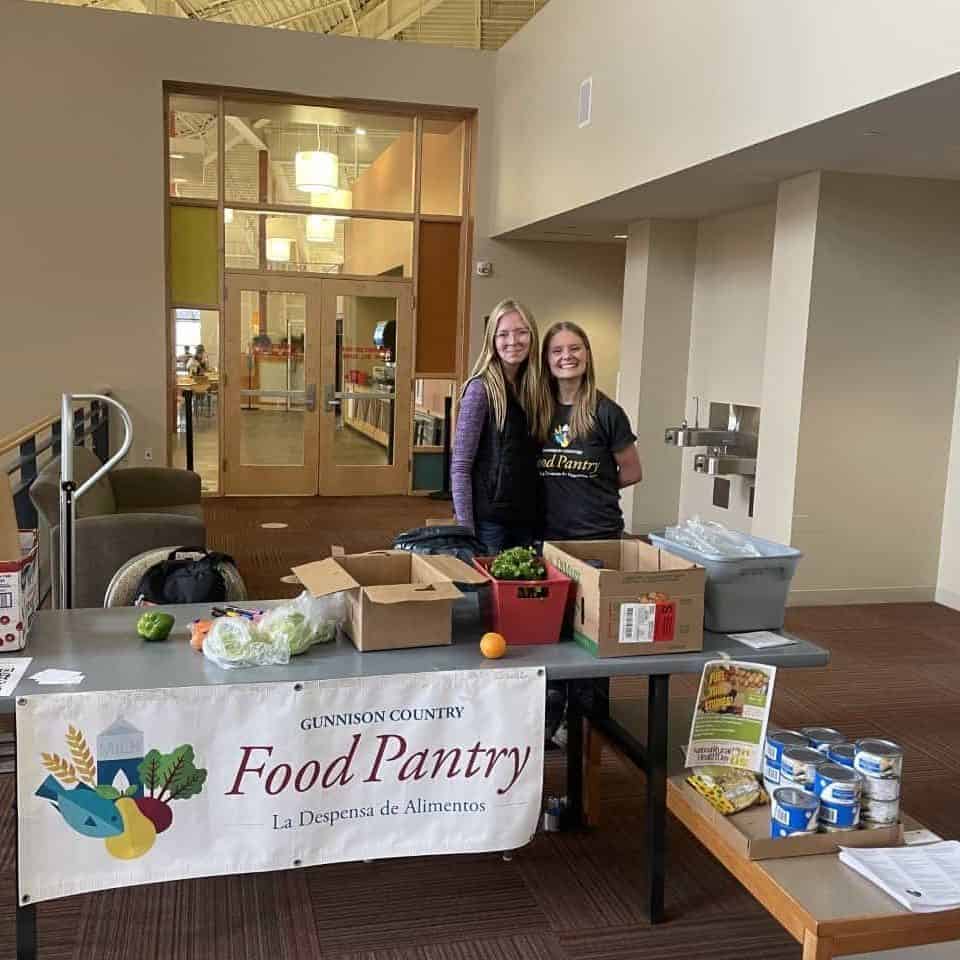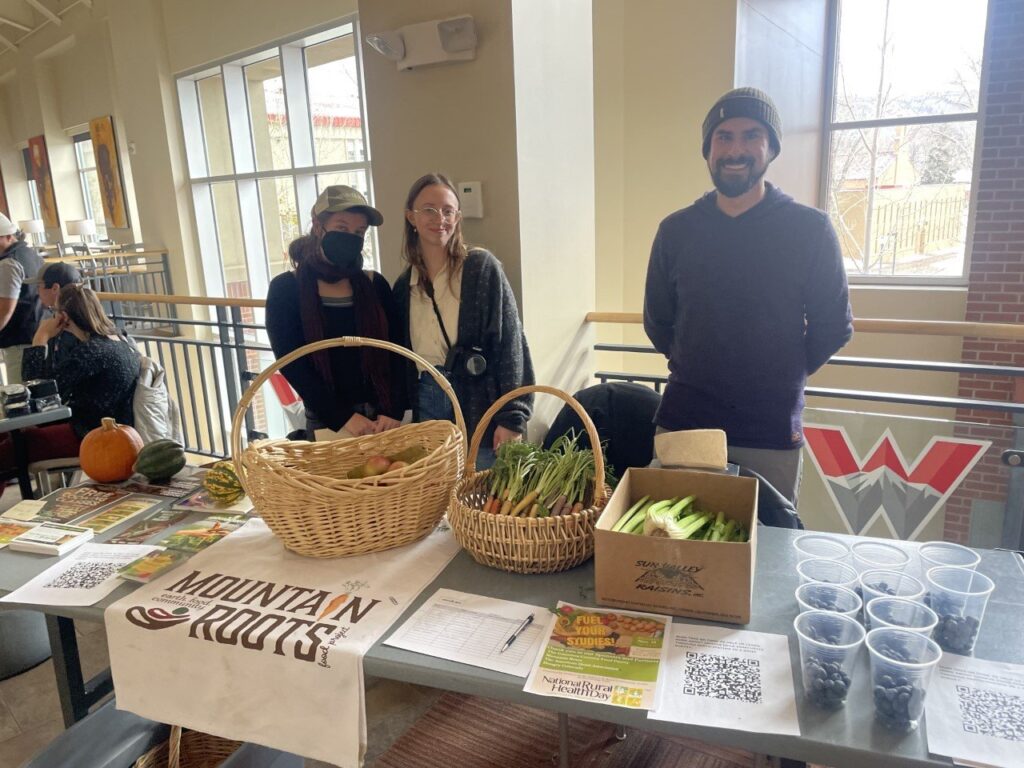By Madison Gregurek

The entryway to Western’s Rare Air Café (RAC) experienced more traffic than usual on Monday, Nov. 14 as students, faculty and community members on their way to lunch were greeted by an array of tables covered with resource sheets and pamphlets.
Attendees also had the opportunity to take home fresh food, provided by the Gunnison Country Food Pantry (GCFP) and Mountain Roots Food Project, and snack on charcuterie boards from Wilder’s Organic Market as they learned about available local and national resources. The collaborative event was made possible by Rural Community Health master’s students, but everyone had come together for a common purpose — to promote food security within the university community.
It’s been no secret that the cost of living has increased across the nation over the past year. Post-pandemic inflation has raised the prices of many necessities — including a wide range of food products.
Here in Gunnison, a town in which the price of groceries is estimated to be 14 percent higher than the national average, many residents have unfortunately become intimately familiar with the concept of food insecurity.
Food insecurity, defined by the USDA as “a lack of consistent access to enough food to maintain an active, healthy lifestyle”, is especially prevalent in rural areas like Gunnison.
According to Feeding America, college students face an elevated, but often overlooked, threat of food insecurity. These factors combine to place some students at Western in a tough position when it comes to affording groceries.
The prevalence of campus food insecurity was recently brought to light by students in Western’s Rural Community Health master’s of behavioral science (MBS) program. The program places an emphasis on rural community health, leading a cohort of five first-year students to develop a community engagement event in recognition of National Rural Health Day.
Developed by the National Organization of State Offices of Rural Health, National Rural Health Day seeks to draw attention to the efforts of rural citizens and organizations dedicated to improving the health of their communities.
The day is officially designated as the third Thursday in November (Nov. 17 this year), but the MBS program held their own event a few days prior.
“We’re out here today trying to get a sense of what food security looks like and feels like and how to collaborate on bringing nourishing food to all,” says Angie Fike, a member of Mountain Roots’ Food Security Team.

At the event, Western community members were able to sign up for weekly community supported agriculture boxes (CSAs) at zero cost through Mountain Roots.
Jodi Payne, executive director of the GCFP, shared information on accessing the pantry with passerby, and conducted a survey intended to gauge interest in arranging a student shuttle service between Western’s campus and the pantry.
UC-goers were also provided information on receiving SNAP benefits, a federal program providing monetary food stipends to eligible recipients each month. Eligibility for SNAP benefits among college students is dependent upon income, as well as family contributions to educational costs.
Any students interested in receiving SNAP benefits can determine their eligibility by calling Hunger Free Colorado’s free sign-up service at 855-855-4626.
Over the course of the event, graduate students in the MBS program were also able to conduct their own research regarding food security.
In collaboration with Mountain Roots, a survey link was provided to attendees, requesting information regarding their experiences with accessing and affording food throughout their time in college.
This research is ongoing, and additional responses are appreciated and can be submitted by Western students via the virtual survey form.
Towards the end of the tabling session, Cole Cooper, a member of the MBS cohort, reflected upon the impact of the group’s efforts, proclaiming “Food empowerment is key! We all need to be doing our best to support each other to be fed and fulfilled. I am so grateful to all the partners who helped make today a success.”
Western students facing food insecurity are encouraged to contact associate director of Residence Life and MBS student McKenzie Mathewson to be connected with local no-cost food sources and information regarding SNAP benefit eligibility.
You can reach McKenzie at mmathewson@western.edu.
